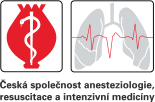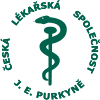Anesteziologie a intenzivní medicína, 2021 (vol. 32), issue 3
Editorial
Should the study of professional foreign resources be considered an obligation of Czech doctors as part of their lifelong learning process?
Černý V.
Anest. intenziv. Med. 2021;32(3):127-128 
Original Article
Heparin's effect on primary hemostasis detected by PFA-200
Bleve E., Durila M.
Anest. intenziv. Med. 2021;32(3):131-135 | DOI: 10.36290/aim.2021.038 
Heparin is widely used in clinical practice; its effect on secondary hemostasis is well known, but its effects on primary hemostasis are controversial. The Innovance® Platelet Function Analyzer-200™ (PFA-200) performs a group of tests that evaluate the primary hemostasis of whole blood. It is frequently used in critically ill patients, but the effect of heparin on its results expressed as closure time is controversial. The purpose of this study was to describe whether different types and doses of heparin may influence closure time results on PFA-200 devices. For this study, 30 patients were recruited and divided into three groups based on...
Review Article
Prehabilitation in surgery - narrative review
Mazúr A., Šrámek V., Čundrle I. ml.
Anest. intenziv. Med. 2021;32(3):136-141 | DOI: 10.36290/aim.2021.023 
Post-operative morbidity is still high. Prehabilitation targets modifiable risk factors, which are clearly associated with post-operative morbidity and thereby enables preoperative optimization. It is a multidisciplinary and multimodal approach improving functional capacity (cardiopulmonary functional reserve), nutritional and psychological status of patients. Implementation of prehabilitation programs in practice is difficult (even in institutions which did not have problem with Enhalanced Recovery After Surgery). However, prehabilitation may lead to better patient outcomes, less post-operative compilations, shorter hospital length of stay and so...
Propofol has already been used in Czechoslovakia for 30 years - history of intravenous anaesthetics
Málek J., Hess L.
Anest. intenziv. Med. 2021;32(3):142-149 | DOI: 10.36290/aim.2021.034 
The article presents discovery of intravenous anaesthetic drugs that preceded or followed introduction of propofol as well as notable names connected with this history.
Systemic corticosteroids in the management of covid-19 ARDS
Keller F., Kočí V., Řiháková K., Maláska J., Stašek J.
Anest. intenziv. Med. 2021;32(3):150-155 | DOI: 10.36290/aim.2021.036 
Human coronavirus SARS-CoV-2 (Severe acute respiratory coronavirus 2), due to its ability to cause lung injury in significant percentage of patients, represents great medical and even social problem. Since the outbreak of the pandemic at the end of 2019, many new therapeutics have been tested. Unfortunatelly, real benefit in high quality studies was confirmed in just a few of them. One of these exceptions is represented by corticosteroids used in patients with advanced grade of oxygenation failure. Corticosteroids have favorable influence on lung injury and potentially facilitate reparation of pulmonary functions by modulating inflammatory response...
Compartments and nerve blocks in the leg bellow knee
Nalos D., Beňo L., Naňka O., Hlásny J., Grgač I.
Anest. intenziv. Med. 2021;32(3):156-163 | DOI: 10.36290/aim.2021.040 
The article describes the anatomical relationships of peripheral nerves with theirs surrounding structures in the leg bellow knee joint. Attention is focused on the connective tissues that accompany macroscopically visible nerves. Ultrasound imaging allows to identify superficial, deep fascias and fascial compartments of the leg. Visualization of superficial and deep structures enables the performance of nerve blockages at sites outside of usual locations. Ultrasound assistance provides us with a wider range of peripheral nerve block options on the lower limb and allows to individually adjust the range of the blocks to patient's requirement.
Case Report
Central anticholinergic syndrome - forgotten diagnosis
Vágner J., Votava J., Spálený A.
Anest. intenziv. Med. 2021;32(3):164-167 | DOI: 10.36290/aim.2021.035 
Our article presents a case report of patient with persistent impaired consciousness on awakening from general anesthesia. A 65-year-old patient with Crohn's disease was indicated for scheduled laparoscopic assisted ileocecal resection. The operation was performed without complications under general anesthesia. In the immediate post-anesthetic period, a quantitative disorder of consciousness of the nature of significant somnolence to sopor dominated. The state of consciousness did not improve over time and therefore naloxone and aminophyllin were administered to patients with a suspected prolonged opiate effects. However, their administration did not...
Surgical vena cava filter retrieval in anaesthesiologist's and surgeon's views
Horáček M., Fiala R.
Anest. intenziv. Med. 2021;32(3):168-171 | DOI: 10.36290/aim.2021.037 
Thromboembolic disease and pulmonary embolism are major causes of morbidity and mortality. Unprovoked deep vein thrombosis can signal a serious illness. When anticoagulant therapy is contraindicated, the placement of a caval filter may be appropriate. The number of implantations has been rising, although the contribution of filters to reducing mortality has not yet been clearly demonstrated, as filters can be associated with serious complications. This case report presents management of anaesthesia and technique of surgical extraction. It is always necessary to respect differences in the condition of patients, the indication for implantation, the type...
Short Communication
Hyperbaric oxygenation and covid-19 disease?
Cvachovec K.
Anest. intenziv. Med. 2021;32(3):172-173 | DOI: 10.36290/aim.2021.024 
Clinical physiology
Clinical significance of the epiglottis
Astapenko D., Šatanková J., Chrobok V., Černý V.
Anest. intenziv. Med. 2021;32(3):174-175 | DOI: 10.36290/aim.2021.042 
Reports of professional companies
The 23/2021 ČSARIM Committee opinion: Covid-19 and resuming planned surgical and diagnostic procedures requiring anaesthesiology care
Černý V.
Anest. intenziv. Med. 2021;32(3):176-182 
doc. MUDr. Ivan Čundrle, CSc., 9. 1. 1947 – 28. 5. 2021
Gál R., Zimová I., Antoni H., Minarčíková P., Seidlová D., Stibor B., Štourač P.
Anest. intenziv. Med. 2021;32(3):183 




